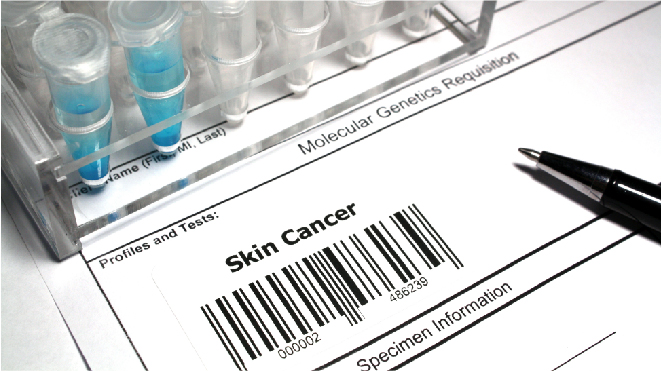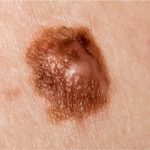Skin cancer can be treated using chemotherapeutic drugs alone, or by the usage of these drugs along with other treatments. These drugs are taken orally or intravenously. Their dosage purely depends on the previous treatment that the patients have received for skin cancer, along with their tolerance levels and age. The following are the drugs approved for skin cancer:
Drugs approved for basal cell carcinoma:
Imiquimod:
This drug is highly prescribed for advanced stages of basal cell carcinoma, actinic keratosis and for genital warts. Read more about stages of skin cancer here.
Fluorouracil (Topical):
It is used for basal cell carcinomas which cannot be removed through surgeries. Fluorouracil is also used for actinic keratosis.
Vismodegib:
This drug is approved for locally advanced, recurrent or metastasized basal cell carcinoma for which surgeries and radiation therapies have failed.
Sonidegib:
Sonidegib is recommended for patients who have basal cell carcinoma of any stage. On finding any signs and symptoms of BCC, a cycle of this drug is prescribed.
Drugs approved for melanoma:
Aldesleukin:
This drug is prescribed for metastasized melanoma. It is often recommended to patients who have good tolerance levels.
Cobimetinib:
Cobimetinib is approved for patients whose skin cancer cannot be removed by surgical procedures. It is often recommended for metastasized skin cancers, especially melanoma.
Dabrafenib:
This drug is prescribed when melanoma has spread to the lymph nodes and cannot be cured with treatment. It is often given in combination with trametinib for higher success rate.
Dacarbazine:
Dacarbazine is prescribed for metastasized skin cancers, especially melanoma. It is mostly recommended when chemotherapeutic drugs have shown no improvement in the patient’s condition.
Talimogene Laherparepvec:
This drug is used for metastasized melanoma in the skin and lymph nodes which surgeries have failed to cured. Talimogene Laherparepvec is also used for recurrent skin cancer post surgery. Read more about surgery for skin cancer here.
Recombinant Interferon Alfa-2b:
It is approved for patients to relieve pain and symptoms of melanoma as an adjuvant therapy. Post active treatments, it is prescribed for patients who are at a higher risk of having recurrent melanoma.
Ipilimumab:
Ipilimumab is used for melanoma which has spread to the lymph nodes and distant organs as an adjuvant therapy. It is recommended only for patients who are above 12 years and for those skin cancers which cannot be removed by surgery.
Pembrolizumab:
This drug is approved for metastasized melanoma which cannot be treated by surgical procedures alone.
Trametinib:
This drug is approved for treating both localised and metastasized melanoma which surgeries have failed to remover. Trametinib is often prescribed in combination with dabrafenib to cure melanoma.
Nivolumab:
Nivolumab is prescribed to patients who has been treated with surgical procedures but the cancer has metastasized. It often given in combination with Ipilimumab.
Peginterferon Alfa-2b:
This drug is approved for treating metastasized melanoma which is not not cured by other treatments. Peginterferon Alfa-2b is often prescribed for cancer which has been spread to the lymph nodes.
Vemurafenib:
Vemurafenib is prescribed for treating melanoma which cannot be cured by other procedures. It is particularly prescribed for patients in whom the cancer has spread to the lymph nodes.
Drugs approved for squamous cell carcinoma:
Cemiplimab-rwlc:
This drug is approved for treating localised and metastasized cutaneous squamous cell carcinoma which cannot be removed by other treatments.
Drug combinations for treating skin cancer:
Skin cancer drugs are often given in combination with other treatments or other anti skin cancer drugs. Following are the most recommended combinations of drugs commonly used in treating skin cancer:
- Dabrafenib + Trametinib
- Encorafenib + Binimetinib
- Nivolumab + Ipilimumab
- Vemurafenib + Cobimetinib




